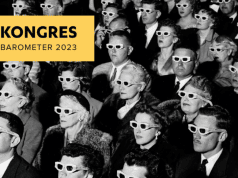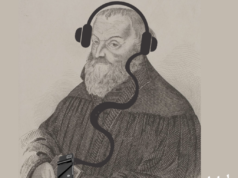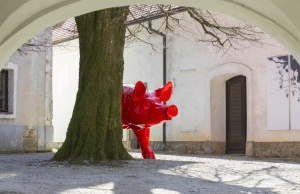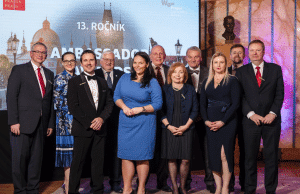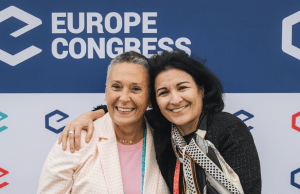Sanja Vukov-Colić is Deputy CEO at Zagreb’s SPEKTAR PUTOVANJA travel agency and is the agency’s leading MICE manager. She graduated in Tourism at the Faculty for International Trade and worked for the Generalturist agency for 11 years, part of more than 30 years experience she has in tourism.
It is well known that the medical/pharmaceutical industry is among three most important industries worldwide when it comes to the number and size of organised meetings and congresses. Medicine itself is the heart of the development of new technologies and therapy procedures, and new efficient medicaments for various diseases are being put on the market almost every day. Therefore, it is absolutely necessary for medical/pharmaceutical professionals to meet as often as possible. Knowledge exchange and continuous education is also important, due to strict medical associations’ rules that members must meet in order to get their licenses prolonged. Medical associations’ conventions and symposiums are in fact so important that they became global events that strongly connect local science with latest international breakthroughs and achievements.
The best medical experts in Croatian medicine are also well known and appreciated among their international academic and scientific peers, which has brought some of the big international congresses to Croatia. One such event is the international educational meeting ‘Cardiology Highlights – An ESC Update Programme in Cardiology’, which is regularly organized by the European Society of Cardiology. Managing Director of this congress is Prof. Dr. Davor Miličić, President of Croatian Cardiac Society.
Despite our experts’ scientific achievements, further development of the Croatian meeting industry is limited, and the reason is well known – Croatia lacks specialised convention centres, which are necessary to host medium and large scale (medical) conferences. Until this infrastructure issue is solved we will not be able to bid for such events that are organised by big European and international associations.
Where and how to organise a medical congress
There is a series of factors that make the organisation of medical congresses different from organising other events, but I would like to highlight these three as the most important:
Transport connections to the destination
Quality and attractiveness of the event for the most part depends on the agenda and speakers, who in the case of medical events are mainly internationally acknowledged experts. Their availability is limited, so their presence at the event must be planned very, very early. Since the duration of their stay in the destination is on average only 1.5 days, their schedule must be precisely planned. Therefore transport availability to the destination has a very important role in organising medical events. One should also have in mind that travel costs can significantly affect the overall budget, which can in return lead to other issues.
Size and variety of a venue’s congress capacities
In Croatia congresses and conventions are mainly being held in hotels that have (smaller or bigger) meeting rooms/halls. The challenge that we face in these venues is that meeting rooms’ capacity is often inversely proportional to the size of an exhibition area for pharmaceutical industry marketing activities. Interaction between conference delegates and related industries is extremely important, and the exhibition area must be easily accessible to delegates. For that reason it is unacceptable to dislocate it to other parts of the hotel, break out rooms or tents.
Code of conduct in the pharmaceutical industry
In the last few years the pharmaceutical industry’s marketing activities are being subject to ever more strict rules and regulations when it comes to exhibiting at medical conventions and events, which can affect not only choice of venue, but even destination and determination of the time of year in which medical conventions can take place. In Croatia there are two pharmaceutical products manufacturers associations that formed their Codes of conduct:
- Croatian Association of Research-based Pharmaceutical Companies – CARPC
- Pharmaceutical Manufacturers Associations within the Croatian Employers’ Association
Those codes clearly define and regulate all interactions between pharmaceutical companies and medical staff, and define what can and what cannot be financed. Codes are harmonised with European codes, such as Code of Conduct/Code of Practice/Code of Ethics/Code of Professional Conduct, and the name of the code is to be determined by the pharmaceutical industry regulatory bodies of each country’s European Federation of Pharmaceutical Industries and Associations (EFPIA) member.
These codes have also a number of rules that affect the organisation of medical congresses. For example, such events cannot be organised in destinations that are mostly known for having an entertainment/leisure offer. They also cannot be organised in hotels that have more than 4 stars, or in ‘Resort/SPA’ hotels. When it comes to airplane travel, business class is out of the question, and economy is the only way to go. Pharmaceutical industry associations and pharmaceutical companies in each country can independently establish their own codes that can be even more restrictive than EFPIA’s Code of Conduct. Some pharmaceutical companies’ codes even limit the period of the year in which they can take part in medical congress, and that often excludes high season (whether summer or winter, depending on destination). Some pharmaceutical companies are not allowed to exhibit (or in any other way take part) in medical congress, even if the hotel has 4 stars, but its characteristics do not meet the company’s Code of Conduct.
There is also a growing number of cases where the congress agenda determines whether a pharmaceutical industry can or cannot participate in the event. If in the event agenda is filled with leisure and entertainment activities, and if those overlap with the scientific program, a pharmaceutical company may not be allowed to finance such a congress or in any other way take part in the event itself.
In the end, it is also important to emphasize the significance of the standard of technical equipment and technical staff, which must be top-end in order to deliver a first class experience to speakers and delegates. Besides that, some medicine branches (for example radiology or nuclear medicine) have specific requirements, so technical aspects must be tailor-made to meet their needs. Having noted all this, I have to mention the leading role in the organisation of a medical congress, and that role is played by the PCO agency. It is the agency that leads an organiser through the whole process, one that includes: destination and venue selection, organisation of leisure and community activities, financial construction and marketing/promotion of the event. In short, the role of an agency is to create such an environment where the organiser will be able to focus on his core, scientific activity: the selection of themes and lecturers for the event.
Measurement of Congress Success
There are many companies that offer their services when it comes to measuring the success of an event. They include various evaluation methods, from basic ones like polls and interviews with delegates to more sophisticated ones that include advanced technology solutions. They will also often offer their know-how on how to increase the number of attendees, or how to measure the impact of an event to the sale of pharmaceutical products (regionally or globally).
Large international PCOs, companies that manage the organisation of congresses specialised for certain professions, (such as, in our case, medical) are more and more involved in association management. They connect with associations through outsourcing of their meeting planners during event planning and organisation, in order to reduce overall costs of preparing and organising and to develop new strategies for increasing profit. One of the most important measures of congress success is achieving the balance between the prestigious scientific level of a congress and the controlled costs of its organisation. As for the most important prerequisites to successfully organising a congress, I would like to highlight the following:
– carefully selected, actual themes that will motivate a large number of scientists to propose their works/papers/projects
– announcements of renowned and respected lecturers
– positive feedback of the pharmaceutical industry
– an attractive destination
– well planned timing of the event that does not clash with similar events in the region.
In today’s times of economic crisis, when many pharmaceutical companies are cutting their budgets for supporting medical congresses, a real success is to attract a sufficient number of attendees. Therefore, I conclude that, in spite of the difficult economical situation and the small pharmaceutical market, Croatian medical congresses still have quite a high number of delegates per event. Despite the many difficulties, with the persistent work of all the industry members we have achieved satisfying results in the promotion of Croatian medicine, and positive financial results.
Sanja Vukov-Colić


